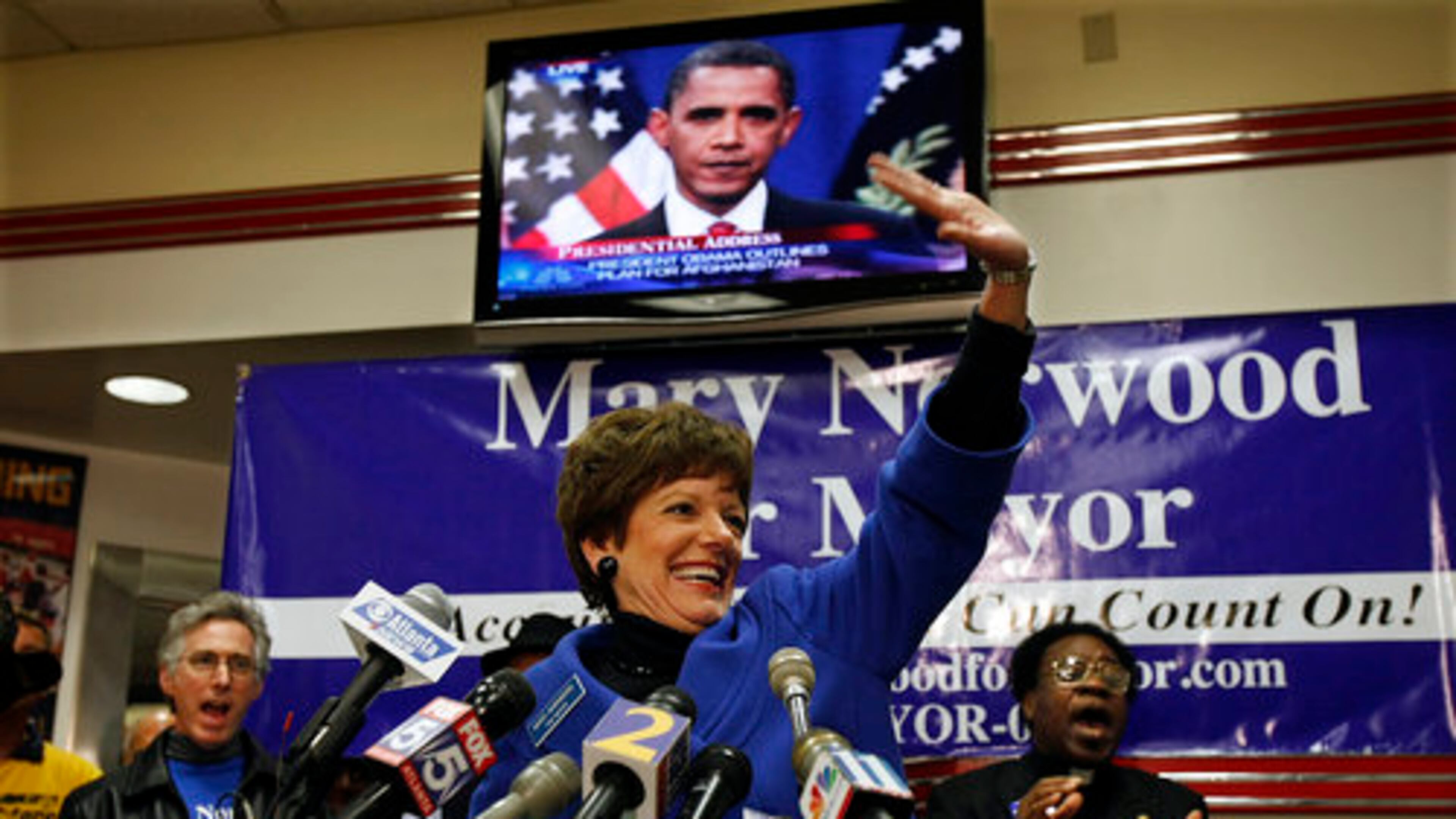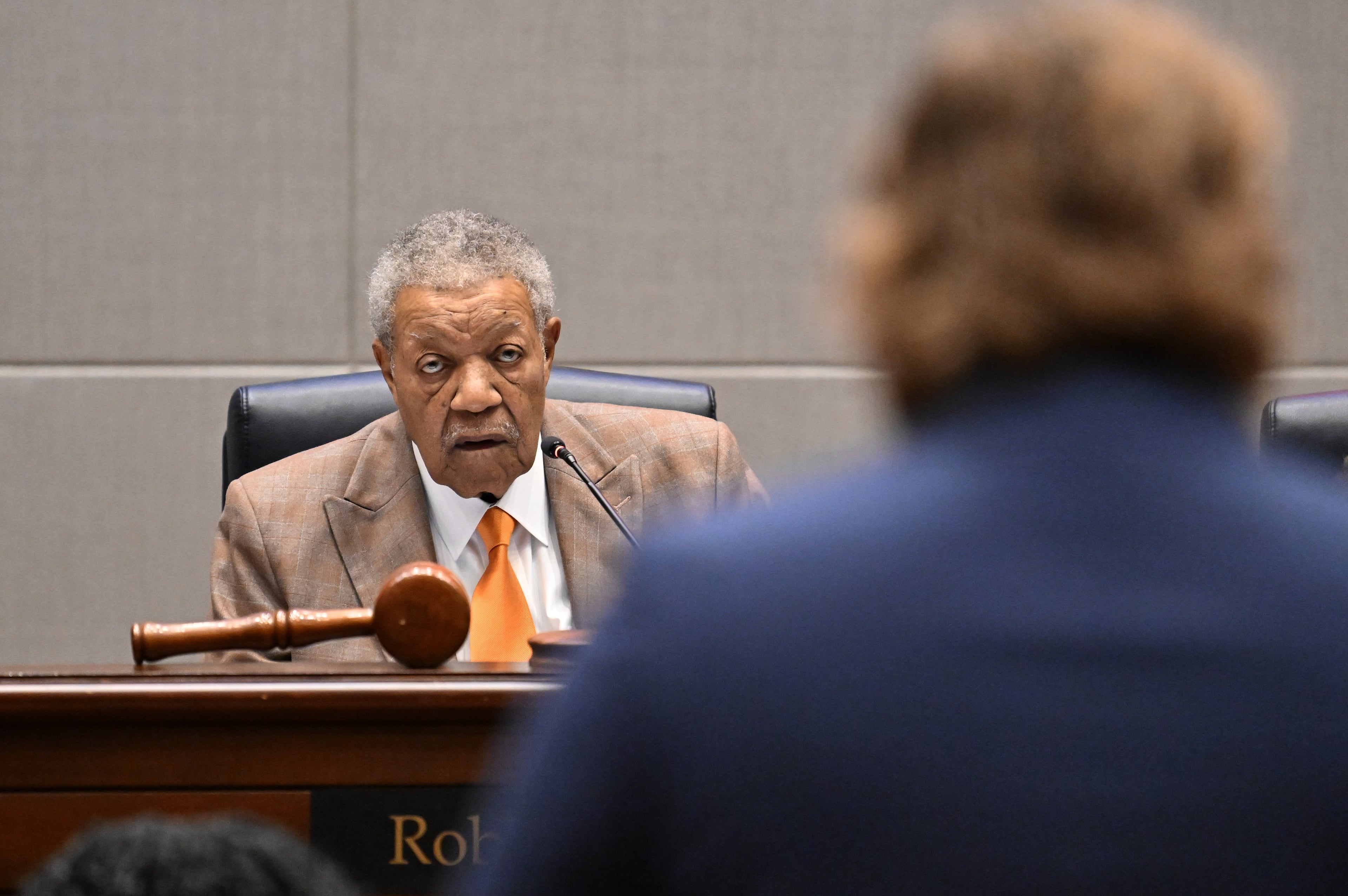Runoff system a Southern relic

This article was originally published Nov. 9, 2009
The runoff election between Atlanta mayoral candidates Kasim Reed and Mary Norwood has its roots in post-Civil War history and a successful, century-long attempt by the Democratic Party to dominate state politics.
Reed and Norwood are locked in what’s likely to a month-long runoff because neither got more than 50 percent of the vote in last week’s multi-candidate mayoral contest.
In many states, Norwood, who got the most votes, would already be mayor, said University of Georgia political scientist Charles Bullock, a runoff expert who wrote the definitive book on the topic, “Runoff Elections in the United States,” in 1992.
But Georgia and half a dozen other mostly Southern states require runoffs for most jurisdictions, Bullock said. Runoffs also take place in some politically charged cities north of the Mason-Dixon line, he said. Chicago, for instance, requires runoffs for city council seats.
Bullock predicted statewide requirements for runoffs will decline over the years. North Carolina has modified its runoff system, he said, and Florida dumped its.
Georgia requires a runoff for state and county elections if neither candidate gets a majority of votes. Runoffs are common throughout Georgia in races with more than two candidates.
“With a runoff you guard against the possibility that a single-issue candidate can win an election,” Bullock said. “They were designed so that a relatively small faction of the Democratic Party could not win.”
A long history
Bullock said Georgia and most other Southern states implemented a runoff system in the early 20th century as an attempt to broaden the base of the then-dominant Democratic Party and finish off an ailing Republican Party. At first, he said, the runoff system was dictated by the Democratic Party executive committees at the county level. It was codified into state law in the 1960s.
The Democratic Party was the only game in town in most Southern states, Bullock said, and Democratic leaders focused on keeping the party out of the hands of relatively small factions.
Arkansas implemented a runoff system, Bullock said, when mainline Democratic Party leaders feared a takeover of the party by the Ku Klux Klan.
Clark Atlanta University political scientist William Boone said that when Democrats first devised runoffs, blacks were disenfranchised and the Republican Party had been dismantled in the South following Reconstruction.
In 1988, State Rep. Tyrone Brooks (D-Atlanta) and more than two dozen other plaintiffs filed a federal lawsuit against the state’s runoff system, claiming that it discriminated against minorities in the election of judges. The lawsuit failed, but Brooks maintains the runoff system hurts minorities’ chances to win elections.
“It was clearly revealed through our research that runoffs had a negative impact on African-Americans,” Brooks said.
In Atlanta’s mayoral election, however, the runoff system actually helped Reed, who is black, survive to fight another day against Norwood, who is white.
Political football
Political strategist Tom Perdue said both Democrats and Republicans, who now control state government, have manipulated the runoff system to their advantage. Perdue has worked for both parties.
“It loses credibility when both parties do this for their benefit,” he said.
Democrats altered runoff requirements in the early 1990s after Democrat Wyche Fowler lost a U.S. Senate race to Paul Coverdell. Fowler got more votes than Coverdell in the 1992 general election, but neither candidate broke 50 percent. In the runoff, Coverdell beat Fowler, which infuriated Democrats, who controlled the state Legislature.
They changed the law so that a candidate only had to win 45 percent of the vote in a general election to avoid a runoff.
Republicans, however, changed the rule back to a majority vote in 2005 after they gained control of the Legislature. The GOP was still smarting over a 1996 U.S. Senate race in which Democrat Max Cleland narrowly defeated Republican Guy Millner.
That change, in turn, came back to haunt Republicans last year when Chambliss got more votes than Democrat Jim Martin and Libertarian Allen Buckley in the general election, but was forced into a grueling runoff because Chambliss did not get a majority.
More Stories
Keep Reading


